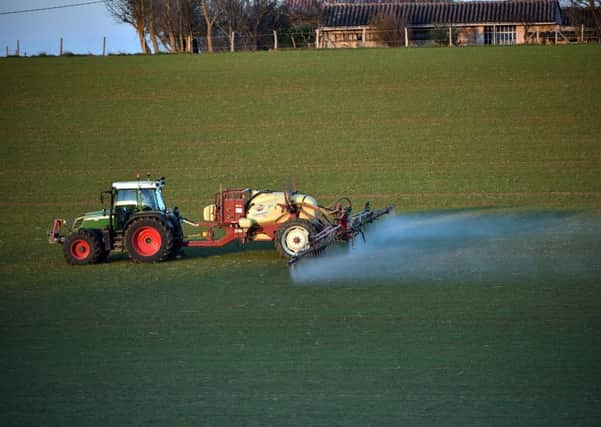MEPs fail to overturn ban on plant protection products


The parliament’s agriculture committee had earlier recommended the proposal be rejected and the majority of MEPs had actually followed this lead and voted against the plan.
However a technicality saw the vote in Strasbourg fall short of the majority required to overturn the package, which had been put forward by the European Commission for a suite of proposals aimed at simplifying greening measures.
• READ MORE: Farming news
Advertisement
Hide AdAdvertisement
Hide AdUK farming unions said that while some useful simplification could be introduced as a result, the overall effect of the ban on sprays on EFA had been sufficient to see them lobbying hard for the package to be ditched.
The plan to ban PPPs on EFA crops had been strongly opposed by NFU Scotland, mainly as it would render the growing of peas and beans as EFA crops unviable – a position that was accepted by the agri-committee of the European Parliament two weeks ago.
Speaking from Brussels after the vote, NFU Scotland president Andrew McCornick said that the decision watered down the genuine simplification benefits that could have been delivered and would make life more difficult for Scots farmers, not easier.
“The vote means the CAP simplification package is likely to be in place for 2018 with a ban on the use of PPPs on some EFAs, including areas with catch crops, green-cover or nitrogen-fixing crops (NFCs),” he said.
McCornick added that the ban had implications for growers in Scotland who had planned on growing autumn sown NFCs such as peas and beans in a few weeks time to be claimed on the 2018 single application form as EFA NFC.
“Clarification is still needed on whether PPPs can be used during the establishment of these crops. Clarification is also needed on whether the rules on spot application of PPPs on EFA fallow will be affected.”
Calling on the Scottish Government to implement the positive elements in the package, he said: “One measure that is not optional is the merging of the field margin and buffer strip options and that is welcome.”
Advertisement
Hide AdAdvertisement
Hide AdWhile the ban on the use of PPPs in NFCs might have been a blow to Scottish producers, the effect will be felt even more keenly in some other member states.
While the NFC’s peaked at close to 13 per cent of EFAs in Scotland in 2015, falling to less than half after it was required that two such crops were grown, the legume option has accounted for 43 per cent of the total EFA area across Europe – and close to 100 per cent in some countries.